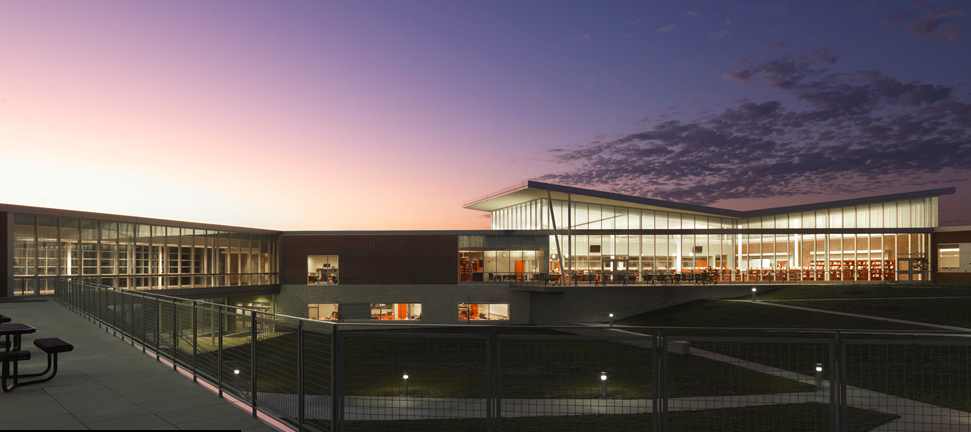2012 forecasts: Architects (and allies) see recovery

Architects around the country tell me about the rumblings. They're seeing and hearing signs of big new projects coming in, even when their clients, the general public and news reports alike seem as gloomy as ever.
The other day the anecdotal good news came from Burke Kitchen, AIA, a project architect with Horst, Terrill & Karst Architects in Overland Park, Kansas. The firm is best known for education projects, which remains a strong niche, as well as judicial and military work. Kitchen said new projects were on the horizon, and he expected to be busier in 2012 -- suggesting returning strength in their specialities.

This reflects the buzz, sedate as it may be, that design firms are reporting everywhere from Miami to Minneapolis, from Penobscot to Portland. Many predict increased hospitality work in 2012, as well as more schools and hospitals.
Stocks are perking up on the rumors. This week, general contractors and even homebuilders enjoyed surprising gains, in part due to the boost in existing home sales. Economists aren't expecting a surge in residential work next year, but why else would companies like Beazer Homes and Hovnanian Enterprises gain more than 9% and 15%, respectively?
All together, GCs improved by almost 7% in recent trading. Gilbane Building Company issued a report confirming that, "New construction starts have been strong [in] four of the last five months," and that both construction spending and related industrial production have improved steadily in the last two quarters of 2011, said Ed Zarenski, a 40-year construction insider who produced the report for Gilbane.
Whether its macro-level gurus like Zarenski or heartland AIA architects like Burke Kitchen, insiders don't see many new jobs in the picture for 2012. Architecture firms will take on new work while attempting to keep hiring at the bare minimum. Builders will enlist the trades for the short term. "There hasn't been appreciable job growth in the six years" in the construction universe, says Zarenski: We'd need 30,000 per month in 2012 to bring us back to pre-recession levels, and a mere 50,000 positions total were added in 2011.
Zarenski's view on manufacturing gains was mirrored by advancing shares in construction materials and machinery companies. Some of the big gains recently have come from makers of commodities other than semi-precious metals, such as Eagle Materials -- concrete and gypsum board -- and USG, which makes lots of value-added products but is weighted heavily toward wallboard, too. Increasing demand for basic materials, at home and abroad, was behind the uptick.
The news suggest that prices could rise, too, tamping some of the predicted growth.
Even though construction prices dipped in recent months, they're up by a solid 6.2% since last year, as seen in a new report by Associated Builders and Contractors (ABC). Steel is up by more than 11% since last December. Contractors and building project owners complain about transportation costs, which have dramatically outpaced material costs, mainly due to oil and gas costs.
Yet ABC's chief economist Anirban Basu expects more "downward pressure on commodity prices" in 2012, as he said in last week's ABC report, with additional declines in 2012 and beyond. "However, the decline in construction materials prices is most welcome," Basu believes, "and may induce a larger number of projects to move forward than expected."
Labor costs vary by location. In Kitchen's Overland Park, subcontractor bids are reported to be lower than ever. But there -- as in many other U.S. markets -- project owners have trouble getting competitive bids, as many subs have gone out of business in recent years.
Mixed news, yes. But the fundamental view that project starts will come in 2012 has architects and other construction companies more optimistic than ever.
Let's hope they'll be busier, too.
This post was originally published on Smartplanet.com